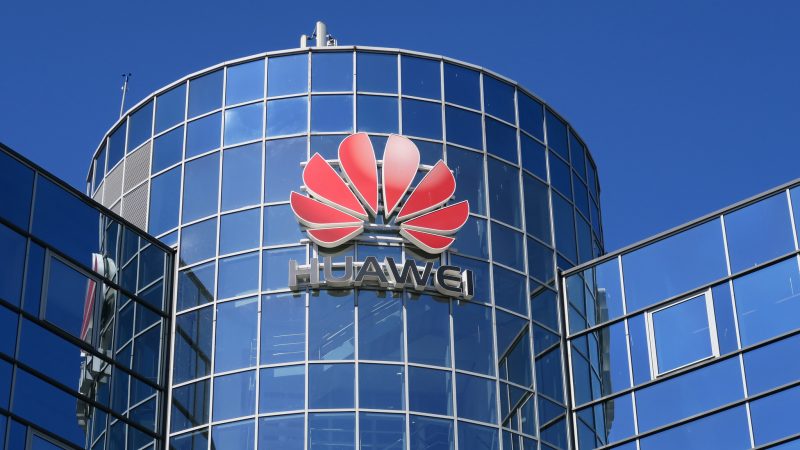 POLICY
POLICY
 POLICY
POLICY
 POLICY
POLICY
Smartphone chip designer Arm Ltd. is the latest company to pull the plug on its relations with Huawei Technologies Co. Ltd., complying with a U.S. government-led blockade on the Chinese firm that prevents it from doing business with American companies.
Experts say the move could potentially cripple Huawei’s ability to make new computer chips for its future mobile phones, as many of the processors it uses are based on Arm’s designs.
Arm’s announcement piles more misery on the beleaguered smartphone maker, which was further hit yesterday by the news that some leading mobile carriers in Japan, Taiwan and the U.K. have decided to stop selling its devices, at least temporarily. Microsoft Corp. also looks like it’s about to join the blockade on Huawei after removing the company’s laptops from its online store.
Arm’s decision raised some eyebrows since the company is based in the U.K. rather than the U.S., which may have led some to assume it isn’t subject to American laws. However, the company performs much of its research and development in the U.S., and any intellectual property designed in the country falls under President Donald Trump’s ban. That’s why Arm is complying with the ruling.
It’s yet another significant blow for Huawei, which has already been barred from doing business with Google LLC and various chipmakers including Intel Corp. and Qualcomm Technologies Inc. The Google ban means Huawei won’t be able to access new versions of Google’s Android operating system, nor will it be able to pre-install Google apps on its new phones. In addition, it can no longer buy essential components used in its hardware from the chipmakers.
The bans follow an executive order signed by Trump last week, which came in response to U.S. fears that Huawei is effectively an agent of the Chinese government, and that it’s equipment could be used to spy on American communications. Huawei denies those accusations, and the U.S. has so far been unable to provide evidence of its claims.
Arm doesn’t build computer chips itself, but instead designs and licenses them to smartphone makers. Its designs are actually the basis for most of the world’s mobile processors, serving as the core of Qualcomm’s Snapdragon lineup, Apple’s A-series chips and Samsung’s Exynos chips, for example. Arm also sells its designs directly to Huawei’s own chipmaking subsidiary, called HiSilicon Technologies Co. Ltd. Without access to Arm’s designs, Huawei would be forced to design its mobile processors by itself from scratch, something that would likely involve years of research and enormous expenditure.
Arm said in a statement that it’s simply “complying with the latest restrictions set forth by the U.S. government.” It added that it’s having “ongoing conversations with the appropriate U.S. government agencies to ensure we remain compliant. Arm values its relationship with our longtime partner HiSilicon and we are hopeful for a swift resolution on this matter.”
For its part, Huawei said it values its relationships with its partners but recognizes “the pressure some of them are under, as a result of politically motivated decisions.”
“We are confident this regrettable situation can be resolved and our priority remains to continue to deliver world-class technology and products to our customers around the world,” it added.
The only silver lining for Huawei is that Arm is allowed to keep supporting its existing products. Also, Huawei will be allowed to continue using any previously licensed chip designs from the company, which means it will be able to continue making processors for the foreseeable future. But should the ban drag on for more than a few months, its chip designs would quickly become outdated.
Still, that may well be the least of Huawei’s concerns right now, since it could also face difficulties in selling its current lineup of smartphones. Yesterday, the New York Times reported that a number of major wireless carriers in Japan, Taiwan and the U.K. have decided to stop offering its existing handsets for sale to their customers.
In the U.K., two of the country’s biggest mobile networks, EE Ltd. and Vodafone Ltd., said that they would stop selling Huawei phones to customers who wanted 5G services until there was “more certainty about the situation.” EE, a unit of BT Group plc. and Britain’s largest cellphone carrier, will open its 5G network next week, and had planned to offer Huawei phones along with Samsung and OnePlus handsets for the service.
Meanwhile, Japan’s SoftBank Corp. and KDDI Corp. said they too would stop selling Huawei’s handsets, citing similar reasons. Taiwan’s telcos Chunghwa Telecom Co. Ltd. and Taiwan Mobile also said they would stop the sale of new Huawei devices, pointing to Google’s lack of support as a reason, Nikkei reported.
As if that wasn’t enough, Microsoft yesterday removed Huawei’s Windows laptops such as its Matebook X Pro from its online store. Microsoft declined to comment on the reasons why, and has so far stayed silent on the wider blockade of the company. But it would seem clear that as a U.S. company, it must also stop doing business with Huawei.
In other news Wednesday, it was also reported that the U.S. government’s ban could extend to additional Chinese tech firms including Hangzhou Hikvision Digital Technology Co. Ltd. and Dahua Technology Co. Ltd., which both sell audio-visual equipment that can be used for surveillance purposes.
Support our mission to keep content open and free by engaging with theCUBE community. Join theCUBE’s Alumni Trust Network, where technology leaders connect, share intelligence and create opportunities.
Founded by tech visionaries John Furrier and Dave Vellante, SiliconANGLE Media has built a dynamic ecosystem of industry-leading digital media brands that reach 15+ million elite tech professionals. Our new proprietary theCUBE AI Video Cloud is breaking ground in audience interaction, leveraging theCUBEai.com neural network to help technology companies make data-driven decisions and stay at the forefront of industry conversations.